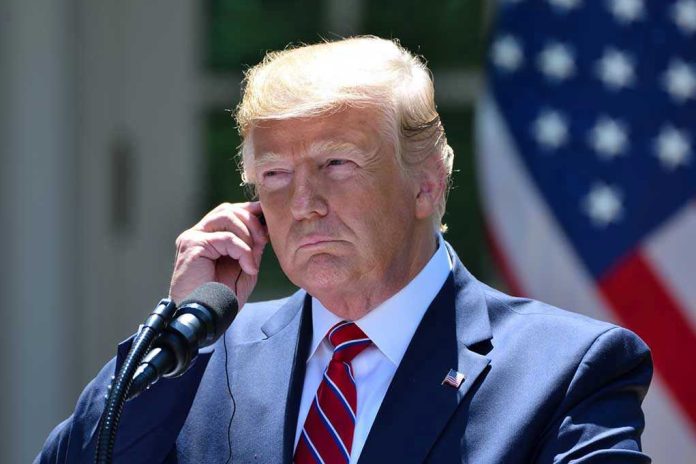
When a sitting president of Colombia brands the U.S. president a “barbarian” over alleged military strikes on drug boats, it is not just diplomatic theater—it signals a tectonic shift in hemispheric relations that could upend decades of uneasy cooperation and mutual suspicion.
Story Snapshot
- Colombia’s president publicly condemned President Trump’s military tactics in the Caribbean.
- The dispute centers on alleged U.S. strikes against boats suspected of drug trafficking.
- This rare, direct rebuke signals escalating tensions between the U.S. and Latin America.
- Public rhetoric and policy decisions on both sides may reshape regional security and diplomacy.
Colombian Leader’s Stinging Rebuke Sends Shockwaves
Colombian President Gustavo Petro did not mince words. Calling President Trump a “barbarian” was not a diplomatic gaffe but a deliberate, high-stakes escalation in response to the U.S. military’s reported actions against suspected narcotics vessels in the Caribbean. Such language—blunt, personal, and public—has rarely been used by a Colombian head of state towards a U.S. president in modern memory. The message was clear: Colombia would not quietly accept U.S. military interventions, even those justified under the banner of anti-drug operations. For a region long accustomed to U.S. dominance, this moment felt different, more defiant, and undeniably consequential.
Petro’s condemnation, broadcast and shared across Latin American media, tapped into a deep well of historical grievance. From the early days of Plan Colombia to the present, U.S. involvement in the region’s anti-narcotics fight has always walked a tightrope between partnership and paternalism. Trump’s decision to send more warships and authorize strikes against alleged drug boats seemed, to many in Colombia, less like cooperation and more like a return to gunboat diplomacy. Petro’s words resonated not only with his own citizens but also with leaders across Latin America, many of whom have harbored similar frustrations, albeit often voiced in private.
U.S.-Colombia Alliance at a Crossroads
For decades, Colombia and the United States have maintained a complex, sometimes fraught, but undeniably close security relationship. Billions of U.S. dollars have flowed into Colombia to combat drug cartels, modernize the military, and support institution building. In exchange, the U.S. has expected—and generally received—Colombian support for its anti-narcotics priorities. But the ongoing militarization of the Caribbean, punctuated by these latest strikes, risks unraveling that delicate understanding.
Public opinion in Colombia has grown weary of what many perceive as a one-sided arrangement. While U.S. officials emphasize interdiction and tough enforcement, Colombian leaders face the brunt of the fallout: economic devastation in rural areas, growing resentment among local communities, and political costs at home. Petro’s fiery rhetoric gave voice to these longstanding grievances. His administration framed Trump’s actions as not just a violation of sovereignty, but a dangerous provocation that could destabilize the region far beyond the drug trade itself.
Regional Implications and Political Calculus
Petro’s attack on Trump is not just about policy; it is a calculated political move with both domestic and international dimensions. At home, standing up to Washington plays well with a populace tired of foreign interference. Abroad, it signals to other Latin American leaders that Colombia is prepared to lead a bloc advocating for greater independence from U.S. dictates. The risk, of course, is real: antagonizing Washington could jeopardize aid, investment, and intelligence sharing at a time when Colombia still faces formidable security challenges.
On the U.S. side, Trump’s team has shown little inclination to dial back. Their public statements frame the strikes as necessary and justified acts of self-defense in the face of an unrelenting drug crisis. But critics, both in Latin America and within the U.S., warn that heavy-handed tactics risk alienating allies and fueling anti-American sentiment. The spectacle of a U.S. president being called a “barbarian” by a key regional partner is not just a diplomatic embarrassment; it is a warning sign that the old playbook may be running out of road.
Sources:
Colombia president rips ‘barbarian’ Trump over alleged drug boat strikes




